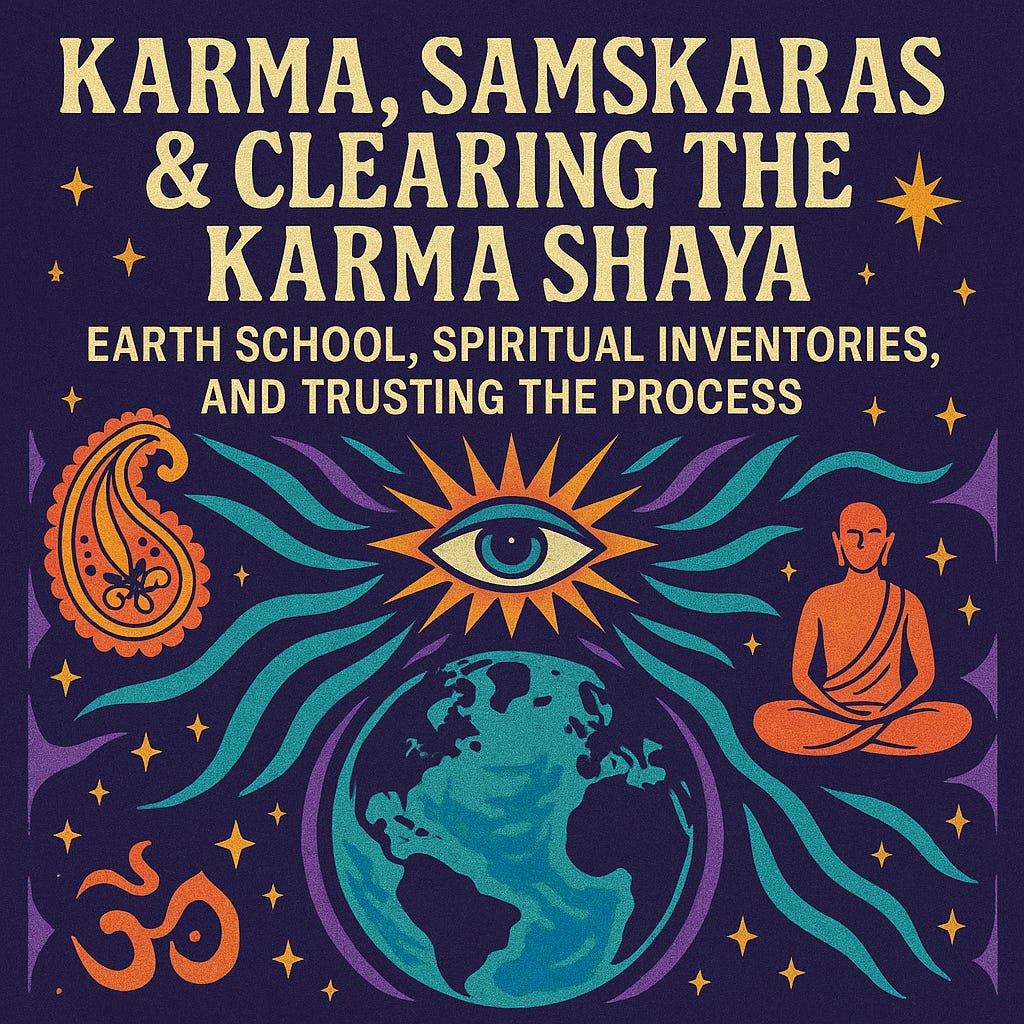#158 Karma, Samskaras & Clearing the Karma Shaya
Earth School, Spiritual Inventories, and Trusting the Process
“God gives the brightest students the toughest assignments.” Liz Gilbert writes in All the Way to the River how someone told her that at a twelve-step meeting, and she wanted to roll her eyes. But then she realized: what if it was true? What if the hardest experiences aren’t punishments, but lessons in Earth School, custom-designed for our growth?
That p…



